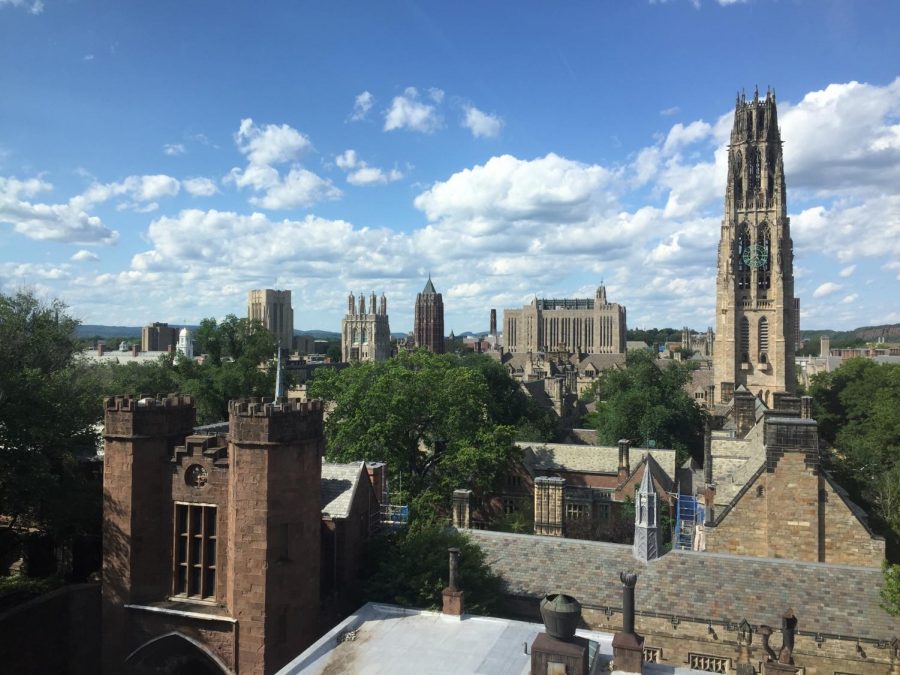Peng: On the Culture of Poverty
Peace spent four years studying Molecular Biophysics at Yale University.
January 22, 2018
“The Short and Tragic Life of Robert Peace’s” title encapsulates it well: the biography of Robert Peace written by his college roommate, Jeff Hobbes, is truly tragic. Despite the odds of his childhood, Peace went on to receive his bachelor’s degree from Yale University, only to be shot in his basement a few years after graduation. Hobbes paints a grueling and genuine story of Peace’s life–one that highlights the weight of fate, questions the definition of success, and contrasts privilege and justice in America.
Robert De Shaun Peace was born in the ghetto of Newark, known as “Illtown.” His single-mother worked a variety of odd jobs to ensure that Peace received a good education despite the pricey burden of private school. Peace excelled at academics and athletics, later receiving a full ride to Yale University. To help support his mother, Peace took on countless jobs at Yale–one of which was drug-dealing. This decision, however, did not affect his academic drive. Soon after graduating, Peace expanded on his research in Molecular Biophysics but overwhelming financial responsibilities and past baggage led him to become more involved in the underground drug industry, eventually resulting in his murder by assumed drug rivals.
After coming to the tragic end of this book, I spent a long time pondering the reason behind Peace’s death. Peace was intelligent, hard-working, and selfless. How could he allow drugs to drag him down when he had managed to overcome so much? Peace knew his believed fate as a man from Illtown and son of a drug-convict. Why did he let history repeat itself?
There is no doubt that Peace was working hard enough. Still, people born into a comfortable life, like myself, are often guaranteed a better future. My financial stability gave me resources that I’ve been able to use to fuel my own learning. In contrast, Peace’s financial instability gave him little to no time too learning at home, and he had to sacrifice much time and effort to simply pay taxes and rent. He had no resources to help him at home with his studies, requiring him addition effort to find resources elsewhere. Before he had received additional scholarships to go to Yale, “he owed it to his mother not to take anything more from her,” and had decided to settle for a mediocre community college instead. Even when Peace flourished in one of the nations most rigorous institutions, money was always an issue that forced him to work odd jobs when he could have been doing research, studying, or having fun like a normal college student. Psychologically, as the privileged are born with monetary success as a norm, lower-classes seem to be reaching towards the impossible. Hearing someone in middle or upper class families drop out of high school is as rare as hearing someone in lower class families go to college.
People argue that we should earn what we work for. I completely agree. It’s only just that people like Peace who have worked harder than any privileged man has in his life should be granted the fruits of his labor and not be staunched by materialist values that could offer success. Peace’s definition of success relied on genuine accomplishments rather monetary income; however, selling drugs was a way to earn enough income to open more opportunities that would feed his curiosity for learning how the world functioned around him.
The idea of the “Culture of Poverty” states that the culture within impoverished neighborhoods cause a cycle of poverty. Peace’s story challenges this belief. Despite the poor condition of his hometown, Peace cherished his background where he learned values the of self-confidence and honesty. Granted, there was increased crime in Illtown, and the reason Peace was able to overcome this was due to his mother support for a better education, despite the financial burden. Peace was naturally intelligent, so he did not feel uncomfortable in his grade school setting. Other people in similar circumstances would have likely felt intimidated by and isolated from these opportunities, much like how Peace would later feel at Yale. Peace was not the odd one out in terms of capabilities. Factors that contributed to his success later in life were his curiosity and perseverance– traits that all people share. The “trend” seen in poverty is due to the continued lack of resources and support of individuals within the community.
Realistically, success often revolves around money and privilege. Peace was certainly aware of this and strove to define his own success, only to be weighed down by financial burdens. Granted, Peace’s decision to turn to drugs as a solution to this burden was foolish. Still, success is relative and should not revolve around the need for money for better opportunities or the intimidation of pursuing opportunities for fear of isolation.
If Hobbes’ book was a novel, it would be an inspiring and sad read. As a biography, however, Hobbes’ highlights the relevance social issues today. The realization that there are multitudes of Robert Peaces in the present and future emphasizes the urgency of equality, class, and development. America was founded on the “pursuit of happiness.” As seen in Peace’s case, however, this pursuit is nearly impossible when money seems to be synonymous to advancement and success today.









